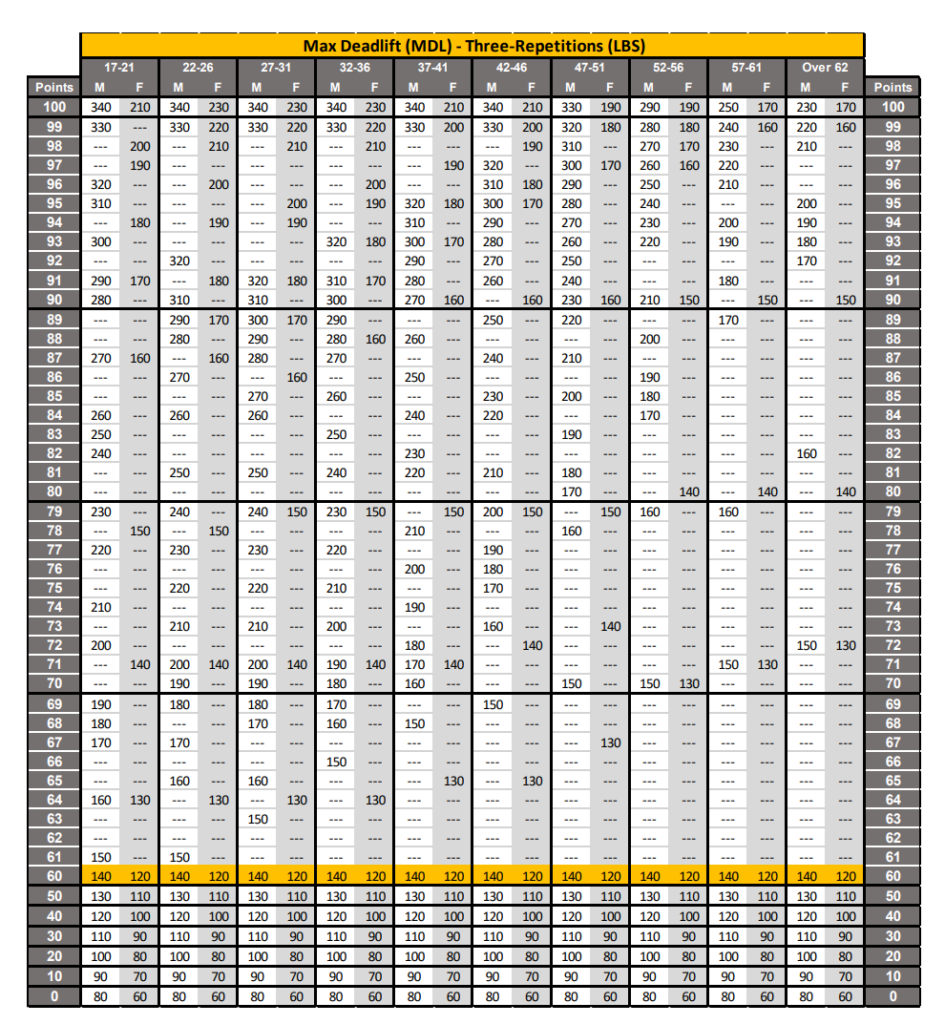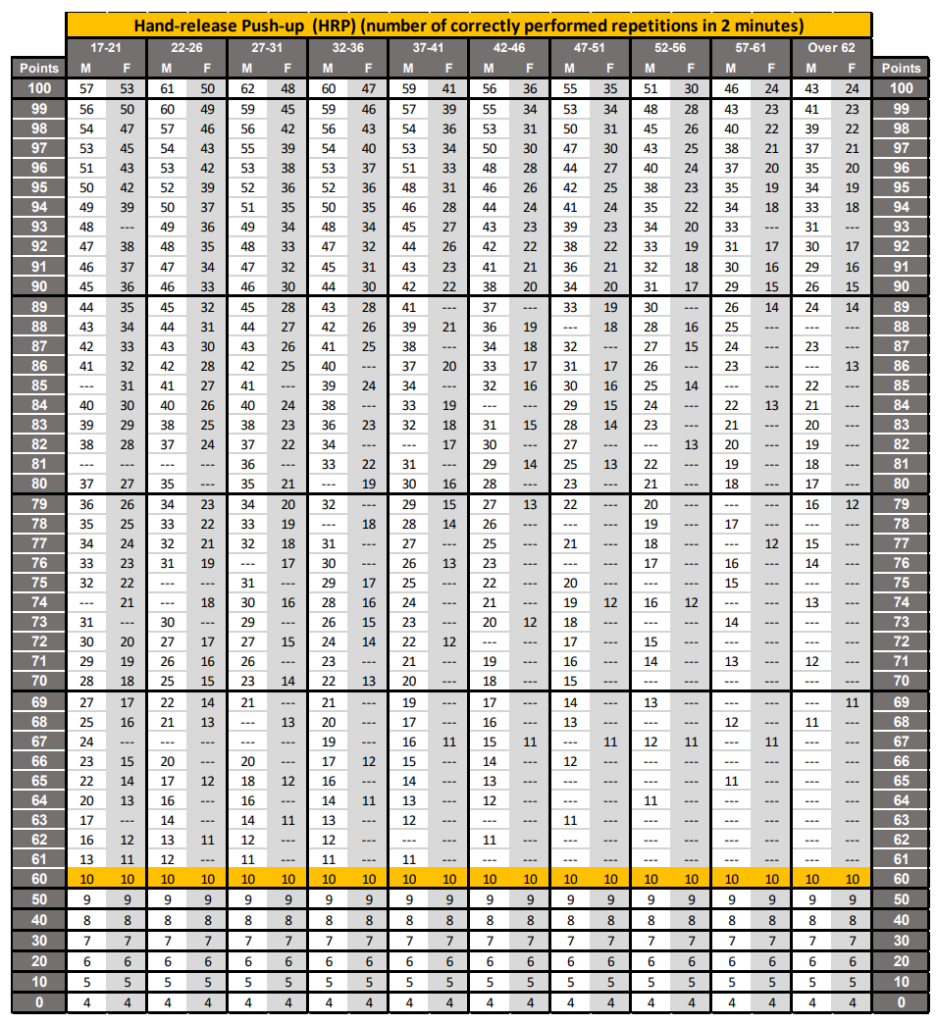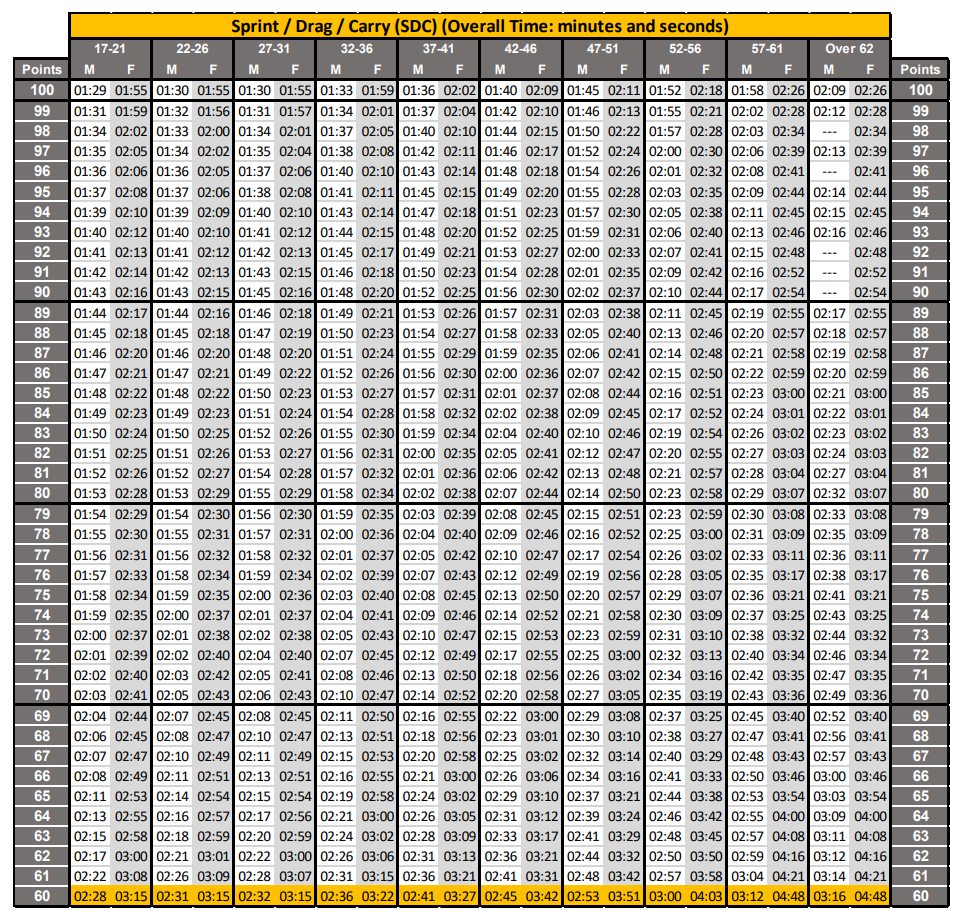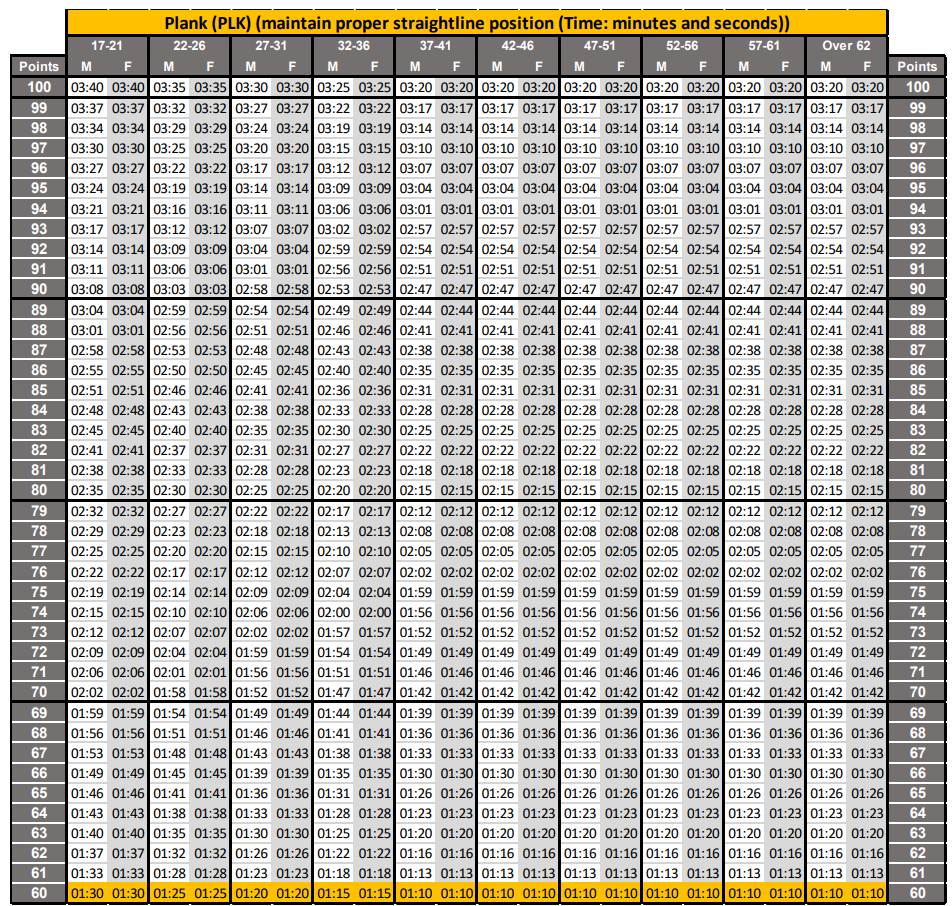Introduction
The aviation industry is one of the most regulated and safety-conscious industries in the world. It is crucial for pilots and aircraft to meet certain standards to ensure the safety of passengers and crew members. One such standard is the aircraft grading scale. The aircraft grading scale is a system used to classify different types of aircraft based on their capabilities and performance. In this post, we will discuss the aircraft grading scale, its importance, and how it is used in the aviation industry.
Purpose of the ACFT Grading Scale
The purpose of the ACFT grading scale is to provide a standardized system for evaluating an individual’s physical readiness and abilities in a military setting. It is designed to assess a soldier’s strength, endurance, power, speed, agility, and coordination through a variety of exercises and tests. By using a grading scale, the Army can identify areas where an individual may need improvement and develop training programs to address those deficiencies. Additionally, the grading scale allows for fair and objective evaluations, ensuring that all soldiers are held to the same standards regardless of age or gender. Ultimately, the ACFT grading scale is meant to ensure that soldiers are physically prepared for the demands of their job and can perform at their best.
Components of the ACFT Grading Scale
The ACFT grading scale consists of six components, each of which is designed to test specific aspects of an individual’s physical fitness. These components are:
1. Deadlift: This component tests an individual’s lower body and back strength. The deadlift requires the individual to lift a barbell from the ground to waist height.

2. Standing Power Throw: This component tests an individual’s upper body power and explosiveness. The standing power throw requires the individual to throw a 10-pound medicine ball as far as possible.

3. Hand-Release Push-Ups: This component tests an individual’s upper body muscular endurance. The hand-release push-up requires the individual to lower their chest to the ground, release their hands, and then push themselves back up.

4. Sprint-Drag-Carry: This component tests an individual’s speed, agility, and strength. The sprint-drag-carry requires the individual to perform a series of exercises, including sprints, drags, and carries.

5. Leg Tuck: This component tests an individual’s core and upper body strength. The leg tuck requires the individual to hang from a bar and bring their knees up to touch their elbows.

6. Two-Mile Run: This component tests an individual’s cardiovascular endurance. The two-mile run requires the individual to complete a two-mile run as quickly as possible.

Each component is scored on a scale of 0-100, with a minimum passing score of 60 for each component. The total score is the sum of each component’s score, with a maximum possible score of 600.
Scoring and Standards of the ACFT Grading Scale
The ACFT grading scale is designed to provide a comprehensive assessment of an individual’s physical fitness and readiness for military service. The scoring system is based on six events, each of which is designed to measure a specific aspect of physical fitness, including muscular endurance, strength, power, agility, and aerobic capacity.
The maximum score for each event is 100 points, with a minimum passing score of 60 points in each event. The overall maximum score for the ACFT is 600 points. The grading scale is divided into three categories: black, gray, and gold.
The black category is reserved for those who score between 540 and 600 points, which indicates a high level of physical fitness and readiness for military service. The gray category is for those who score between 450 and 539 points, which indicates that the individual may need to work on improving their physical fitness before joining the military. The gold category is for those who score between 360 and 449 points, which indicates that the individual needs significant improvement in their physical fitness.
In addition to the scoring system, the ACFT also has specific standards for each event. These standards are based on the physical demands of military service and are designed to ensure that individuals are physically capable of meeting the challenges of their assigned duties.
For example, the standard for the leg tuck event requires an individual to complete two repetitions while maintaining a strict form, including keeping their elbows locked and touching their knees to their elbows. The standard for the deadlift event requires an individual to lift a weight equal to at least their own body weight, with proper form and technique.
Overall, the ACFT grading scale and standards are designed to ensure that individuals are physically capable of meeting the demands of military service. By providing a comprehensive assessment of physical fitness, the ACFT helps to ensure that individuals are prepared for the challenges of their assigned duties and can perform at their best in any situation.
Conclusion and Recommendations for the ACFT Grading Scale
In conclusion, the new ACFT grading scale presents a significant change from the previous APFT. It places greater emphasis on functional fitness, muscular strength, and endurance, which are critical for soldiers to perform their duties effectively. The new grading scale also accounts for different age groups and gender, ensuring that everyone is held to the same standard while being fair.
However, some concerns have been raised about the higher standards and the impact it may have on soldiers who struggle to meet them. It is essential to provide additional support and resources to help soldiers improve their fitness levels and meet the new standards. Regular training and coaching can help soldiers achieve their goals and improve their overall health and well-being.
In addition, it is recommended to conduct regular reviews of the ACFT grading scale to ensure it remains relevant and effective. The Army should continuously gather feedback from soldiers, trainers, and experts to identify any shortcomings or areas that need improvement. This will help maintain the integrity of the grading scale and ensure that it remains a valuable tool for assessing soldiers’ fitness levels.
Overall, the new ACFT grading scale is a significant step forward in promoting functional fitness and ensuring that soldiers are adequately prepared to perform their duties. With proper support and training, soldiers can achieve their fitness goals and meet the new standards, contributing to a more robust and effective military force.
